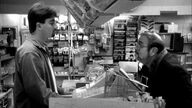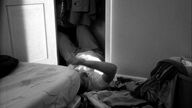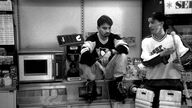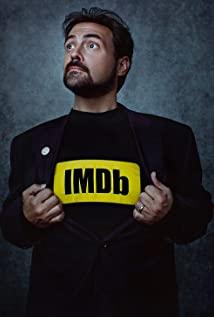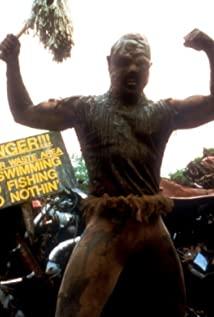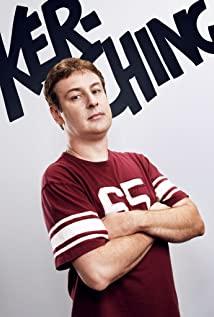Dante is an ordinary slack worker with a dead-end job in the grocery store. Dante also has a good friend Randall for company. On an ordinary working day, the two silently experience life's problems: how to squeeze in a hockey game in their 9-to-5 job; how to tell if your girlfriend has had too many blowjobs; How to maintain a relationship when your ex is about to get married.
The filming of "Crazy Clerk" was financed by credit cards and the sale of rare comic books, and the filming took place at the workplace of director Kevin Smith at the time. The film was one of several hits of the early '90s that led to a revival of youth films. Quentin Tarantino has made progress, but "Crazy Clerk" was built on a foundation that was nowhere near enough to make a movie. The film's material seems very anti-film, but that makes it all the more compelling for its wit and evoked resonance. Smith's fundamental insight is that life itself is a movie, and bringing that idea to film makes "Crazy Staff" so much fun. The film has a number of random allegorical references, including the main character's name, Dante.
Using a well-known literary figure, Smith subtly places the protagonist in his own hell through popular perception: the grocery store. Here, Dante is forced to endure the torture of menial jobs, serving all kinds of utterly stupid and mentally ill customers (he repeatedly protests, "I shouldn't be here today"). All of this is not directly articulated, but simply left to screen life to paint naturally. The actors are as affectionate to symbols as they perceive reality. In fact, pop culture is the primary choice of escapism for many of the characters on the show: Dante's famous conversation with Randall, who in Star Wars: Return of the Jedi would sign up to work on the Death Star, and even a Customers are attracted, eager to express their views as laborers.
It can be said that "Crazy Clerk" has no real narrative to speak of. The film presents a series of interconnected events that somehow cohere into a meaningful whole. These events are subdivided by novel-style chapter titles ("The End," etc.), which further add a dramatic perspective to Dante's mediocre life.
The film's repeated attacks on modern American culture include a fully developed sub-theme - the casual nature of smoking. It turns out that the rogue customer who fanned the flames in the store and advocated quitting smoking was nothing more than a chewing gum salesman. Adding more irony to the scene, customers keep coming into the store to buy cigarettes. Not wanting to be confined by a cramped space, Smith was incredibly creative with his camera (behind the counter, featuring a candid conversation between Dante and his current girlfriend, Veronica). The rich and explicit dialogue (which originally earned the film an NC-17 rating) further immerses audiences in the languid backdrop, and it has since become an unrivaled classic in teen cinema for its epic sheer vulgarity .
Brian O'Halloran, Jeff Anderson, and the rest of the cast (talking back to each other like a classic off-line comedy) light-hearted antics reveal the true humanity of a drab life, albeit diluted by older patrons armed with pornography this monotony.
View more about Clerks reviews




